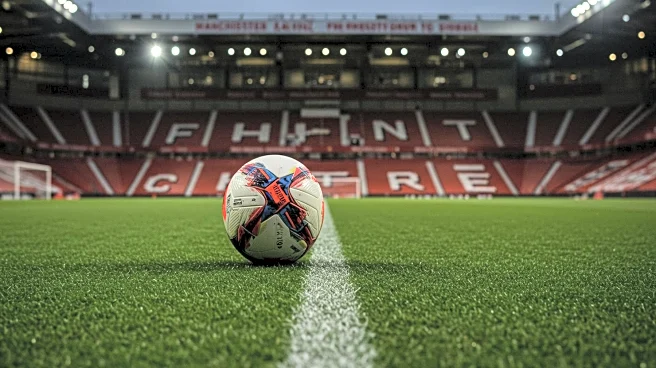What is the story about?
What's Happening?
Manchester United has signed Fridolina Rolfö, a former Barcelona star, on a contract extending until June 2027. Rolfö joins United as a free agent after leaving Barcelona earlier this summer. She expressed excitement about joining Manchester United, citing the club's size, history, and its journey in women's football as key factors in her decision. Rolfö has enjoyed significant success at Barcelona, winning 13 trophies, including four Liga F titles and two Champions Leagues. Her move to Manchester United is seen as a strategic step to bolster the team's presence in the Women's Super League (WSL) and establish itself in the Champions League.
Why It's Important?
The signing of Fridolina Rolfö is significant for Manchester United as it aims to strengthen its women's team and compete at the highest levels in the WSL and Champions League. Rolfö's experience and success at Barcelona bring valuable expertise and leadership to the team. Her presence is expected to enhance the team's competitiveness and attract more attention to women's football in the UK. This move reflects the growing investment and focus on women's sports, highlighting the increasing importance of gender equality in athletics and the potential for women's football to gain more prominence globally.
What's Next?
Fridolina Rolfö will begin working with Manchester United's manager Marc Skinner, his staff, and her new teammates as she integrates into the team. The club will focus on leveraging her experience to improve its performance in domestic and international competitions. Fans and stakeholders will be watching closely to see how Rolfö's addition impacts the team's dynamics and results. The move may also inspire other clubs to invest more in their women's teams, potentially leading to increased competitiveness and visibility for women's football.
Beyond the Headlines
Rolfö's transfer to Manchester United underscores the broader trend of increasing investment in women's sports. It highlights the shifting cultural attitudes towards women's athletics and the growing recognition of their potential to draw significant audiences and sponsorships. This development may encourage more young female athletes to pursue careers in football, contributing to the sport's growth and diversity.
















